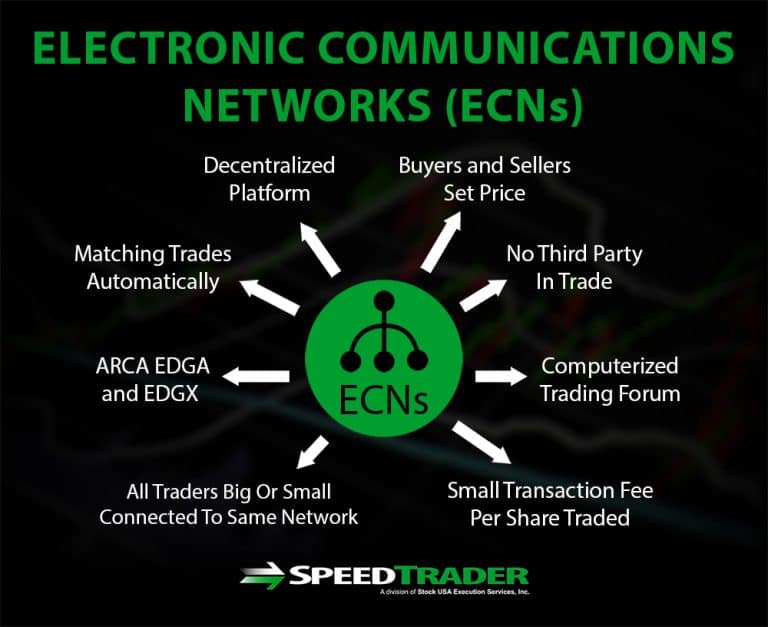USPS Package Mystery: Unexpected Deliveries & Concerns
Have you ever received a package you didn't order, leaving you scratching your head in confusion and perhaps a little bit of suspicion? You're not alone, and the mystery behind these unsolicited deliveries often leads straight to Stamps.com, the online vendor of USPS postage, and a whole host of unanswered questions.
The digital age has revolutionized how we shop, connect, and conduct business. Amidst this convenience, a peculiar phenomenon has emerged: the unsolicited package. Stories abound of individuals receiving unexpected deliveries, often linked to Stamps.com, a company specializing in online postage solutions for businesses. These aren't your typical misdirected letters; these are full-fledged packages, sometimes containing items that are utterly perplexing to the recipient. This raises a multitude of questions: Are these random acts of kindness, marketing mishaps, or something more sinister? The internet forums and social media threads are filled with theories ranging from elaborate scams to simple errors in fulfillment. Some users report receiving items they never purchased, while others speculate about the purpose behind these surprise deliveries. The confusion is compounded by the fact that many recipients have no prior interaction with Stamps.com, making it difficult to trace the origin or intent of the package.
| Topic | Details |
|---|---|
| Company Name | Stamps.com |
| Business | Online vendor of USPS postage, providing shipping labels and related services to businesses and individuals. |
| Potential Issue | Unsolicited packages being sent to individuals, causing confusion and raising concerns about data privacy and potential scams. |
| User Experiences | Recipients report receiving packages they didn't order, leading to speculation about the purpose and origin of these deliveries. |
| Possible Explanations |
|
| Related Companies | USPS (United States Postal Service), FedEx, UPS (involved in the delivery process) |
| Related Terms | Brushing scam, online postage, shipping labels, unsolicited packages, data privacy, fulfillment errors |
| Additional Resources | Better Business Bureau (BBB) |
The mystery deepens when considering the role of the United States Postal Service (USPS) and other shipping giants like FedEx and UPS in this logistical puzzle. The USPS, as the primary carrier for many of these packages, finds itself at the center of the inquiry. While the USPS provides the infrastructure for delivery, it is often the last mile in a complex chain of logistics that involves numerous players, from the online retailers to the fulfillment centers and the companies providing the shipping labels. In some cases, FedEx or UPS handles the initial stages of the delivery process, only to hand off the package to the USPS for the final leg. This intricate web of transportation makes it challenging to pinpoint the exact source of the unsolicited packages. It also highlights the potential vulnerabilities in the system, where errors or malicious activities can occur at various points along the supply chain. The tracking information provided by the USPS, while helpful in tracing the package's journey, often stops short of revealing the ultimate sender, leaving recipients with more questions than answers.
- Diva Flawless Porn Hottest Videos Onlyfans Leaks 2024
- Raspberry Pi Remote Iot Projects Setup Ideas Beginners Guide
Adding to the complexity is the sheer volume of packages handled by the USPS on a daily basis. With the rise of e-commerce, the postal service has become an indispensable artery for the movement of goods across the country. This surge in volume, while beneficial for the economy, also places a strain on the USPS infrastructure and increases the likelihood of errors. Packages can be misrouted, mislabeled, or simply lost in the shuffle. In the context of unsolicited packages, this means that a simple mistake in addressing or labeling could result in an unintended delivery. Furthermore, the USPS's internal processes and security protocols are constantly evolving to address emerging threats. The agency faces a delicate balancing act between ensuring the efficient delivery of mail and protecting against fraud and other illegal activities. This ongoing challenge requires continuous vigilance and adaptation to stay ahead of potential risks.
The anecdotal evidence surrounding unsolicited packages from Stamps.com paints a picture of widespread bewilderment and, in some cases, genuine concern. Online forums and social media platforms are filled with threads where users share their experiences, seeking answers and comparing notes. Many recipients report receiving packages containing low-value items such as seeds, cheap jewelry, or small electronics. These items are often of little use to the recipient, further fueling the suspicion that something is amiss. The recipients often wonder if their personal information has been compromised or if they are being targeted in some way. This sense of unease is amplified by the fact that the packages often lack clear return addresses or sender information, making it difficult to investigate the matter further.
The phenomenon of unsolicited packages has also sparked discussions about data privacy and the security of online transactions. In an era where personal information is increasingly collected and shared, the potential for misuse is a growing concern. The recipients of these packages are often left wondering how their names and addresses ended up on a mailing list for unsolicited items. This raises questions about the practices of online retailers, data brokers, and other entities that collect and share personal information. The potential for data breaches and the unauthorized use of personal data are real threats that can have significant consequences for individuals. In response to these concerns, privacy advocates are calling for stronger regulations and greater transparency in the handling of personal information.
- Somali Wasmo Telegram Find Channels Groups Year Guide
- Viralkand The Future Of Viral Content News Today
One prevalent theory that attempts to explain the Stamps.com mystery is the "brushing scam." This scheme involves unscrupulous sellers who create fake online orders to boost their product ratings and visibility on e-commerce platforms. By sending unsolicited packages to random individuals, these sellers can then post fake reviews under the recipient's name, artificially inflating their product's popularity. This tactic is particularly effective because it leverages the trust and credibility associated with genuine customer reviews. The recipients of these packages are often unaware that their identities are being used to manipulate the online marketplace. The brushing scam is a deceptive practice that undermines the integrity of e-commerce and harms both consumers and legitimate businesses. It also highlights the challenges faced by e-commerce platforms in combating fraudulent activities and ensuring the authenticity of product reviews.
The impact of these unsolicited deliveries extends beyond mere confusion and annoyance. For some recipients, the unexpected arrival of a package triggers feelings of vulnerability and insecurity. The thought that their personal information may have been compromised can be unsettling, especially in an age of increasing cybercrime. Moreover, the potential for identity theft and other malicious activities is a real concern. Recipients may worry that their names and addresses could be used for fraudulent purposes, such as opening unauthorized accounts or making fraudulent purchases. This sense of vulnerability can lead to increased vigilance and a heightened awareness of online security risks.
While the mystery of the unsolicited Stamps.com packages may never be fully solved, understanding the potential explanations and risks can help recipients protect themselves. By being aware of the possibility of scams and data breaches, individuals can take steps to safeguard their personal information and avoid falling victim to fraudulent schemes. This includes monitoring credit reports, being cautious about sharing personal information online, and reporting any suspicious activity to the appropriate authorities. Additionally, consumers can demand greater transparency from online retailers and data brokers regarding the collection and use of personal information. By working together, individuals, businesses, and government agencies can help create a safer and more secure online environment.
Adding another layer to this already complex situation are the experiences users have had with the USPS itself. The digital age has brought its own set of expectations and challenges, and the USPS is not immune to criticism. People share stories of packages delayed, misdelivered, or even lost altogether. Some vent their frustrations in online communities like the "mildlyinfuriating" subreddit, showcasing the everyday annoyances that can arise from relying on postal services. One user recounted a situation where a package was sent further away before eventually finding its way back, a testament to the occasional "wonky" shipping processes. These experiences, while often minor in the grand scheme of things, contribute to an overall perception of the USPS as an organization that, while essential, can sometimes be unreliable.
Within the USPS, even the headquarters (HQ) isn't immune to scrutiny. There are murmurs and assertions that USPS HQ can be just as mismanaged as other parts of the organization, or even other federal agencies. This perception underscores the immense task of managing a nationwide network that handles millions of pieces of mail and packages daily. A former senior engineer from a fulfillment company even recalled an instance where the USPS contacted their office, requesting them to halt a particular action, suggesting a level of oversight and intervention that might not always be apparent to the average customer. The question of whether incident response is "200% necessary" for a major federal agency, particularly one that was victim to a major breach in 2014, highlights the ongoing need for vigilance and improvement within the USPS.
The Electronic Customs Notification System (ECNS) also plays a crucial role in international shipping, particularly when packages are undergoing customs clearance or being processed at a USPS facility. The acronym "ECNS" itself is often misunderstood, but it represents a vital system for tracking and managing international shipments. For emergency services, ECNS refers to an Emergency Communication Nurse System. When a call comes into the communication center, ProQA dispatch software is launched by the Emergency Medical Dispatcher (EMD). Based on a callers answers, ECNs have the power to send an ambulance if necessary. The ECNS progress, from initial call to dispatch, is designed to be comprehensive yet simple, ensuring that emergency situations are handled efficiently and effectively.
Businesses like ECNS Global Consultants, PLLC, located in Charlotte, North Carolina, provide crucial engineering consulting services. They offer a range of services, including electrical, control, network, and security design, catering to various projects. With a small team of around eight employees, they bring diverse specialties and backgrounds to the table. These consultants offer a complete project life cycle of electrical and control systems, performing services such as electrical engineering design, load flow and short circuit studies, coordination and arc flash studies, and protective relay upgrades. ECNS Global Consultants also provides feasibility and economic studies, conceptual designs, and major equipment and system specifications. Finding company research, competitor information, and financial data for such firms is essential for understanding their market position and potential for growth.
For businesses involved in international trade, understanding Export Control Classification Numbers (ECCNs) is crucial. These numbers specifically identify items that are subject to export control regulations, ensuring that sensitive technologies and goods are not shipped to unauthorized parties. The USPS is part of that chain. Proper management of ECCNs is essential for compliance with international trade laws and regulations. Resources such as the Consolidated Screening List API can help businesses screen against various lists. For additional information about ECNS certification, individuals can contact the International Academies of Emergency Dispatch.
The evolving landscape of shipping and logistics requires constant adaptation and vigilance. While the mystery of the unsolicited Stamps.com packages remains perplexing, it highlights the importance of data privacy, online security, and the complexities of modern supply chains. By understanding the potential risks and taking proactive measures, consumers and businesses alike can navigate this landscape with greater confidence and security.
- Somali Telegram Groups 2024 Find Active Channels Now
- Db Cooper Mystery New Clues Emerge In Skyjacking Case

What are ECNs in Trading? Electronic Communication Networks YouTube

Armaments displyed in massive military parade (9/9)

ECNs and Market Makers What You Should Know